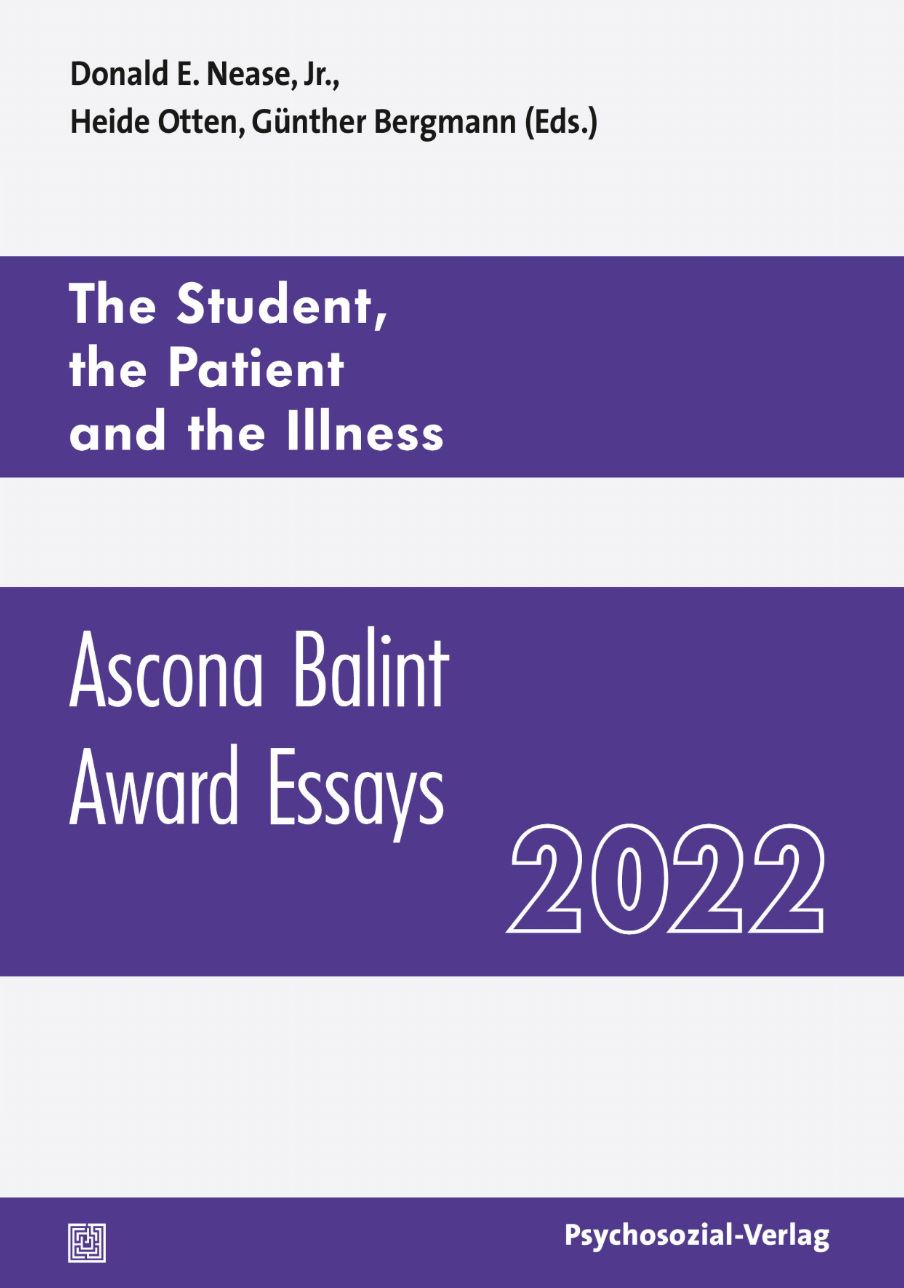Ascona Prize for Students
History
The International Balint Award or Ascona Prize was first awarded in 1976 by the Swiss General Practitioner Boris Luban-Plozza, who also began the Foundation for Psychosomatic and Social Medicine. Dr. Luban-Plozza practiced in Ascona, and at Monte Verita hosted international medical student conferences promoting the values of patient-centered medicine as espoused by Michael and Enid Balint. The Ascona Prize seeks to recognize student essays that embody and illustrate the importance of the relationship at the heart of medical practice. Since 2002 the Ascona Prize has been jointly sponsored by the Foundation for Psychosomatic and Social Medicine and the International Balint Federation, with the prize winning essays being delivered at the bi-annual International Balint Congress.
ASCONA PRIZE 2026
The Foundation Psychosomatic and Social Medicine invites medical students to consider applying for The International Balint Award 2026 – “Ascona Prize“
They should describe a student-patient relationship, an experience, or experiences, from the student’s medical studies and include critical reflection on personal meetings with patients. Prize monies of € 5,000 are available for the authors of the best three essays. Papers must be in English. Each essay will be reviewed by an international jury with final prize winners being selected by a committee named by the Foundation and the International Balint Federation.
The criteria by which the papers will be judged are as follows:
- Exposition:
The paper should include a presentation of a truly personal experience of a student-patient relationship. (Manuscripts of former medical theses or diplomas cannot be accepted.)
- Reflection:
A description of how the student experienced this relationship, either individually or as part of the medical team.
- Action:
The student's own perception of the demands to which s/he felt exposed and an illustration of how s/he responded.
- Progression:
A discussion of both ways in which the student's own approach might change in the future, and also possible ways in which future medical training might enhance the state of awareness for individual students.
Submissions of 5.000-12.000 words should be sent by email, as a Word attachment to Prof Don Nease: DONALD.NEASE@CUANSCHUTZ.EDU
They must be received before 31st January 2026. Prizes will be given at the International Balint Congress in Aarhus, Denmark, 30 Sept – 3 October 2026.
The prize winners will be expected to give a short presentation of their essay (not more than 15 minutes) at the Congress and the full text of the papers will be published in the Proceedings of the Congress and other Balint Journals.
The Congress fee will be waived for prize-winners and they will be provided with free accommodation. In addition, each prizewinner may claim reasonable travel expenses (the cheapest available air fare) on the production of appropriate receipts.

